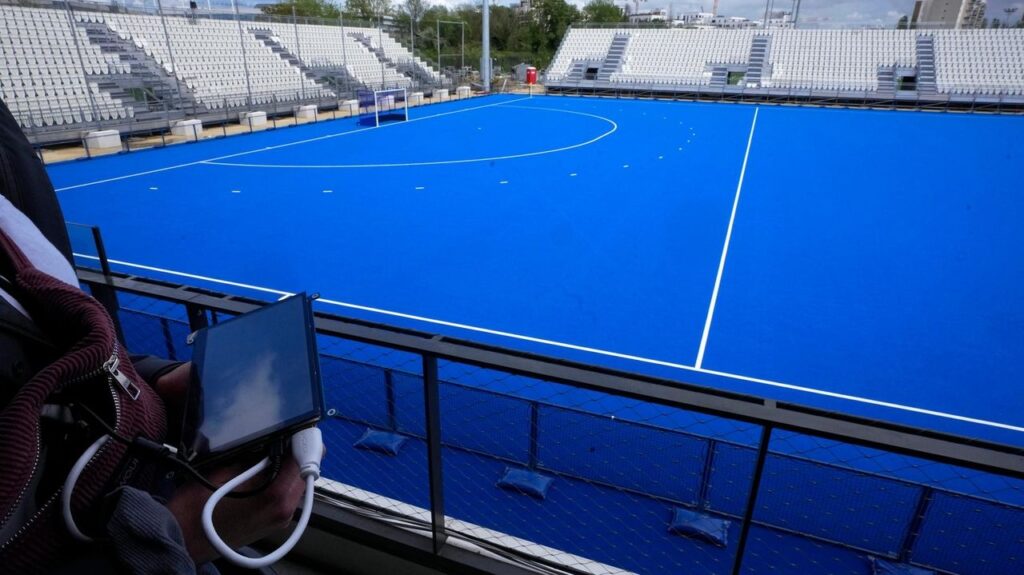SAINT-DENIS, France — Just like Olympic athletes, the cyber warriors critical to the success of the Paris Games are hard at work training for the big event.
They have come to rely on friendly hackers to probe their cyber defenses, much like boxers who rely on sparring partners in preparation for a championship fight. They studied and analyzed their opponents' strengths, tactics, and weaknesses. They can be anything from a teenage showboat and a ransomware gang to Russian military hackers with a track record of malicious cyber attacks.
But unlike the 10,500 Olympic athletes who will gather in the French capital in July, the cybersecurity engineers behind the Games prefer to stay out of the spotlight. For them, the equivalent of a medal is completing the Olympic and Paralympic Games without any major accidents. That will mean their digital defense layers will withstand attempts to cripple the computers and information systems essential to the tournament.
“My dream for the Olympics is that technology and cybersecurity aren't talked about, because that means it's not an issue,” said Jeremy Couture, head of the Paris Games organizers' cybersecurity hub. . Event organizers keep its location a secret because its work to discover, analyze and respond to cyber threats is so sensitive and critical to the success of the Games.
Those responsible for preventing cyberattacks during the Games are reluctant to reveal many details of their work, but malicious hackers are sure to keep them busy this summer. They can range from cybercriminals to thrill-seeking teenage troublemakers to Russian military intelligence agents with a track record of damaging cyberattacks.
The target is not just the Games themselves, but also infrastructure essential to the Games, such as transportation networks and supply chains.
Attackers can include “hacktivists” looking to make a political statement or cyber extortionists bent on making money. And these days, it is often difficult to distinguish between hacktivists and state-sponsored cyber operators masquerading as hacktivists.
Cybersecurity experts work at the Yves du Manoir stadium in Colombes, outside Paris, on Friday, May 3, 2024. The cybersecurity team working to protect the Paris Games from hackers and other attackers is reluctant to reveal too many details about their work. But they have no doubt that cybercriminals will keep them busy. Credit: AP/Michel Euler
Among the most threatening cyber adversaries are countries seeking to embarrass and impose costs on France and the International Olympic Committee with their proven offensive hacking chops. At the top of the list of suspects is Russia.
Due to Russia's ongoing war in Ukraine, Olympic organizers plan to ban Russia from competing in team competitions at the Paris Games, and only allow some individual Russians to compete as neutrals. Russia is also at odds with France, which provides Ukraine with weapons and military training and has become one of Russia's fiercest critics in Europe.
Vincent Strubel, head of France's National Cyber Security Agency, known by its French acronym ANSSI, said the level of cyber threats facing the Games was unprecedented.
“There will be cyberattacks during the Olympic and Paralympic Games,” Strubel said at a press conference on Friday. “Some people won't take it seriously. Some of them are serious, but they won't affect the Olympics. And there are probably some serious ones that could affect the Olympics. ”
He said things would go well because authorities are “extremely” more trained than ever before, adding: “I think we were able to stay one step ahead of the attackers.”
Strubel cited Russia as an actor attacking France “somewhat repeatedly” but said there was no point in focusing on any one actor. “We are preparing for everything.”
A particularly aggressive unit of Russia's GRU military intelligence called Sandworm has been accused by the West of using malware called “Olympic Destroyer” to disrupt the opening ceremony of the 2018 Winter Olympics in Pyeongchang, South Korea. It has been criticized by many countries. This is the same unit accused of the so-called wiper attack on Ukraine's power grid and the 2017 NotPetya virus, which caused more than $10 billion in damage worldwide.
The Paris cybersecurity team has sought to learn from these experiences, consulting with engineers who also worked in Pyeongchang.
Sweden-based cybersecurity firm Outpost24 gave an extensive assessment of Paris' preparations in a report this week, but said its investigation still found flaws in the tournament's online infrastructure. The evaluation was “I can't say it's a gold medal, but it's definitely a silver medal.''
“Just as pickpockets and ticket touts are targeting tourist groups, cybercriminals are aware of the increased online traffic leading up to the 2024 Paris Games and are looking to take advantage of it.” says the report.
___
AP Technology Writer Frank Bajak in Boston contributed.


